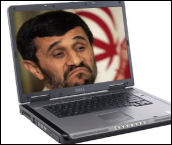 New-York based electronics wholesaler Earlier this year we reported on an indictment against New-York based electronics wholesaler Sunrise Technologies and Trading Company (“ST&TCâ€) and its president Jeng “Jay†Shih for exporting laptops to Iran by transshipping them through the UAE. Last Friday, the Department of Justice, along with officials of the Bureau of Industry and Security (“BIS”) and the Office of Foreign Assets Control (“OFAC”) announced that Shih and his company pleaded guilty to the export charges in exchange for an agreement to pay a $1.25 million criminal fine and to consent to a suspended 10-year export denial order. No jail time is contemplated by the plea agreement.
New-York based electronics wholesaler Earlier this year we reported on an indictment against New-York based electronics wholesaler Sunrise Technologies and Trading Company (“ST&TCâ€) and its president Jeng “Jay†Shih for exporting laptops to Iran by transshipping them through the UAE. Last Friday, the Department of Justice, along with officials of the Bureau of Industry and Security (“BIS”) and the Office of Foreign Assets Control (“OFAC”) announced that Shih and his company pleaded guilty to the export charges in exchange for an agreement to pay a $1.25 million criminal fine and to consent to a suspended 10-year export denial order. No jail time is contemplated by the plea agreement.
The suspended export denial order is contained in the BIS settlement documents. The suspension is conditioned on the defendants complying with the plea agreement, i.e., paying the $1.25 million fine, and on the defendants not committing any export violations during the 10-year period of the suspended denial order.
Although the judge could theoretically impose jail time during sentencing scheduled for January 13, 2012, that seems unlikely. The absence of jail time and the suspended denial order are unusual in cases like this. I can only speculate that the relative leniency of the penalty, particularly the absence of jail time, is due to a deficiency in the government’s case which I pointed out in my initial posting on the indictment. Although the government had evidence that Shih knew that the computers that he was shipping to the UAE were ultimately destined for Iran, he also said in conversations with the government’s informant that he believed his actions were legal because he was only exporting the items to the UAE. A criminal export violation requires knowledge by the defendant that his actions are illegal and it appears that was going to be difficult to prove here.
Obviously this is only speculation on my part and there may have been other factors involved in the lenient treatment of Mr. Shih and his company. Still, my speculation seems pretty reasonable in this case.
 Permalink
Permalink
Copyright © 2011 Clif Burns. All Rights Reserved.
(No republication, syndication or use permitted without my consent.)

 Posted by
Posted by  Category:
Category: 

